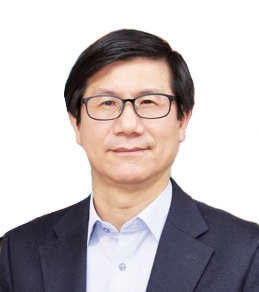Doo Yong Park
Professor of Industrial Hygiene, Hansung University Dean of Graduate School, Hansung UniversityCurrent Position:
Professor of Industrial Hygiene, Hansung University Dean of Graduate School, Hansung University
Education:
DrPH School of Public Health, University of Michigan MPH School of Public Health, Seoul National University BS Seoul National University, Agricultural Science
Professional Experience:
President of Korea Occupational Safety and Health (KOSHA) 2017-2021 Director General, Occupational Safety and Health Research Institute 2007-2009 President of IOHA 2016-2017 Founder and President of ANOH 2016-2017
Speaking Topics
IOHA Lifetime Achievement Award 2021 ANOH Lifetime Achievement Award 2019
Speaking Topics
A New Approach for Auxiliary Compensating Workers' Illnesses in the Semiconductor Industry
The theoretical principle of worker’s compensation is based on a causal relationship between injury/illness and workplace hazards, which increases transaction costs and controversies because not every case has a clear causal relationship between injury and workplace hazards. Thus, a combination of 'working time' and 'workplace'(called T-P principle) has been developed as a criterion for determining compensability. The T-P principle does not work well for most compensating occupational diseases (ODs) because they do not always occur 'during working time' and 'in the workplace'. Therefore, a causal relationship is required for compensating ODs, and it might work for traditional ODs such as acute poisoning, pneumoconiosis, and metal poisoning since they have a clear causal relationship. However, it does not work well for many newly found ODs that have low incident rates, such as cancers and rare diseases, since the uncertainly increases in the causal relationship. One of the episodes that failed to find a clear causal relationship between ODs and health hazards was leukemia and other diseases in the semiconductor industries. For the last decades, this has caused big controversies in Korean society, but the traditional compensation scheme has not provided a solution. A new auxiliary compensation scheme for the ODs was developed and suggested to the semiconductor industries. It was based on acknowledging uncertainty and intrinsic limitations in proving a causal relationship. Instead of checking a causal relationship individually, a scoring system was developed based on type of diseases, potential work contributing factors, worker characteristics, and severity of diseases. Compensable diseases were listed based on the literature review, epidemiological research results, and any other potentially positive evidence. The maximum compensable amount was set, considering medical and other costs. The final compensation amount was determined by the maximum amount multiplied by the score. An independent third-party committee was established to run this scheme. This program has been running successfully since February 1st 2019. This presentation will introduce the background, framework, and achievements.

